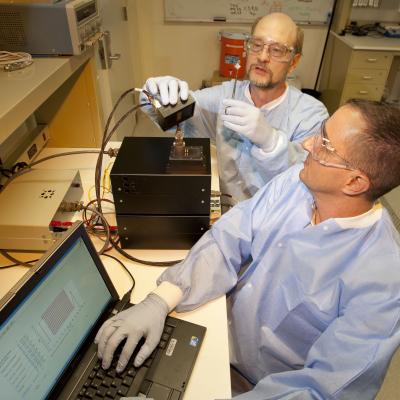Solid-state distributed node-based rapid thermal cycler for extremely fast nucleic acid amplification (LLNL Internal Case # IL-12275, US Patent 8,720,209)
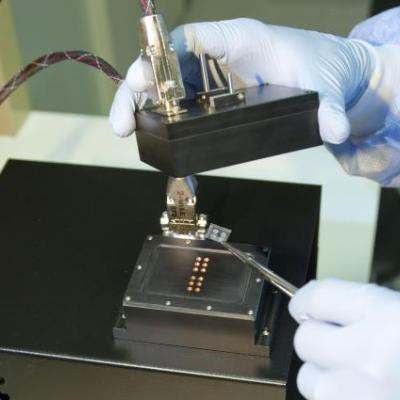
Laser heating of aqueous samples on a micro-optical-electro-mechanical system (LLNL Internal Case # IL-11719, US Patents 8,367,976;
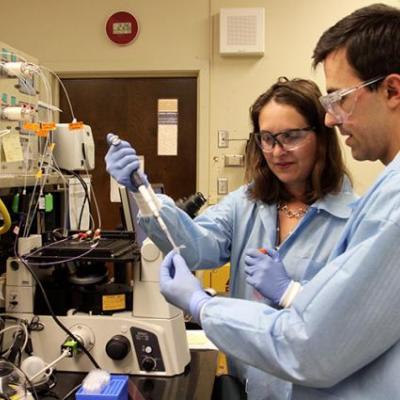
This technology describes a method for partitioning fluid into “packets” between polymeric sheets. The fluid to be partitioned is introduced between two polymeric layers or within a polymeric channel and the layers are sealed together to form an array or sequence of individual milliliter to picoliter samples as shown in figure below. This approach allows a continuous flow of samples through…

The present invention uses magnetic fields to hold particles in place for faster DNA amplification and sequencing. This invention provides a method for faster DNA sequencing by amplification of the genetic material within microreactors, denaturing and de-emulsifying and then sequencing the material while retaining it in the PCR/sequencing zone by a magnetic field. Briefly, nucleic acid…
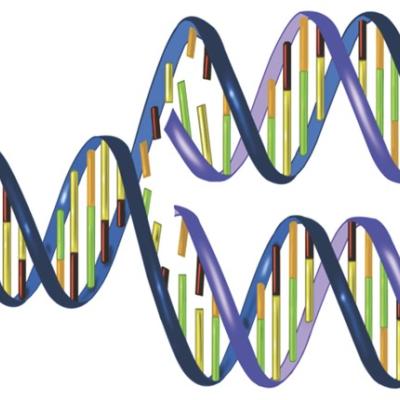
This invention is designed to sort and identify complex samples using parallel nucleic acid characterization. By isolating single or double stranded nucleic acids derived from complex samples, researchers can sequence previously unknown genetic material to identify novel viruses and organisms. The chip-based microfluidic system achieves this through microdroplet PCR amplification,…
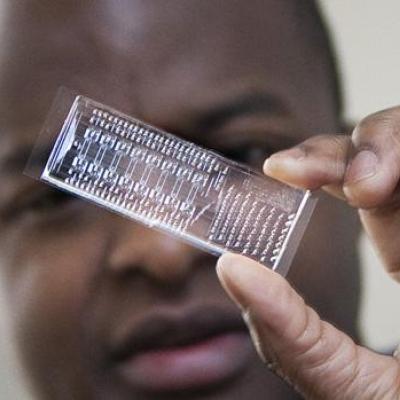
Researchers at LLNL have created a new technology for performing pumping and valving operations in microfabricated fluidic systems. Traditional microfabricated devices have some disadvantages that defeat the advantages of miniaturization. For example, they require high power and voltage, and they need specific fluids to work properly and to be broadly applicable. The technology described here…


